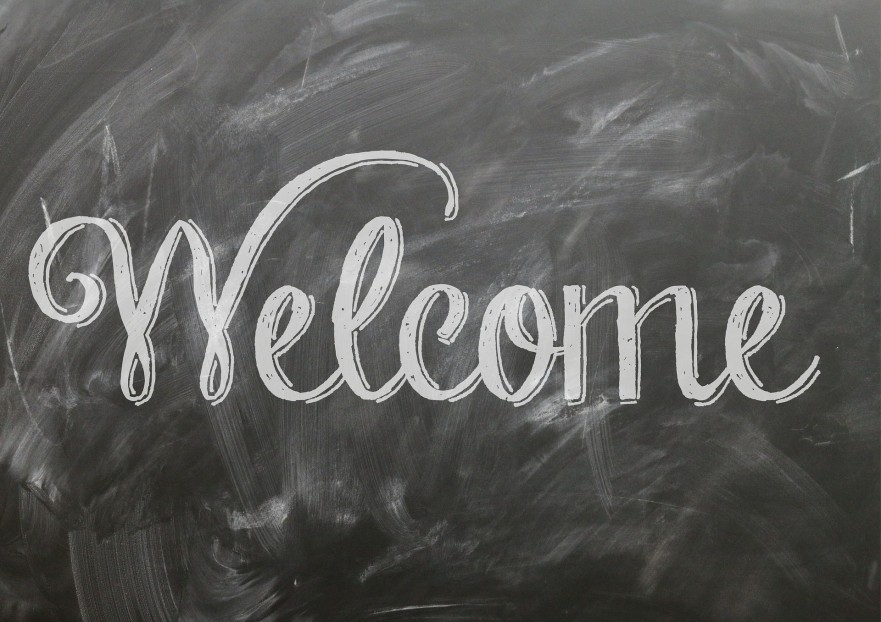Dear New Teacher,
Welcome to the profession! You may be looking around your first classroom and thinking, “When did I become a grown up?” I was 20 years old when I was handed my first classroom keys and 24 five-year-olds. I remember wondering what in the world that principal was thinking.
Maybe you are far beyond twenty and realizing that raising your own children or working in a different field have in few ways prepared you for the realities of teaching. You may be wondering what in the world your principal is thinking.
Seventeen years of first days of school have taught me that teaching is a life of standing for something. Standing for what? That’s up to you. That’s one of the best things about our profession. You choose where you want to lead – in the classroom, policy, advocacy, the possibilities are endless. The sense of fulfillment can be immense. But it can be a heavy responsibility for a beginning teacher.
Here’s what I wish I could tell my 20-year-old self, walking into her first classroom wide-eyed with butterflies in her stomach…
You set the tone of the classroom daily. After a few years under my belt, I had THAT class…the one that their previous teachers tell you about with a gleam in their eye. They were rowdy, negative, and more into brawling than learning. After days of leaving school frustrated and exhausted, thinking, “Those kids are out of control!” I arrived one morning determined to make it a great day. I dropped my mental baggage at the door and started with a fresh attitude and new approach. I learned that day that I make the weather of the classroom. I didn’t magically turn that class into positive, peaceful, eager learners. But it did help my mental health and allowed me to make small gains with my students every day.
Environment is important. Your classroom environment affects behavior (yours and your students’), gives students a sense of safety and well-being, and influences children (and adult) perceptions. Remember that the whole child comes to school. Parents send us the best students they have but those students come as social/emotional beings with feelings and needs. Pay attention to these needs because they must be met before academic learning can occur.
Never underestimate the power of proximity. Don’t barricade yourself behind a large teacher desk or forget to have open paths to wander the classroom. It is harder to cause mischief if your teacher uses ninja skills and seems to be everywhere at once.
Teach students, not objectives or curriculum. Listen to your students. Learn together. Your students will be your best teachers.
Find your tribe. Hopefully, you’ve been assigned a mentor. If you haven’t or if your mentor isn’t a good fit for you, search for a different one, even unofficially. Avoid negative teachers like the plague because that defeatist attitude is contagious and can be a career-killer. Search out the teachers who have a style you want to emulate and then rub the paint off their doorway watching them in action. If they’re not in your building, find them on the Internet. They’re out there, trust me. A mentor relationship should be mutual. Find a mentor who is inspired by your ideas, hopes, and enthusiasm. The right mentor will understand that new teachers keep us veterans fresh.
Study child development. Read Chip Wood’s Yardsticks. When you understand who your students are, what physical and mental developments they are going through, and the stages of learning they are in the midst of, you become more patient and understanding. You can design better lessons tailored to what you know about your students. After my transition from kindergarten to fifth grade, it took me longer than I’d like to admit to learn that eleven-year-olds question everything. I thought five years olds had a lock on the “Why…?” refrain. I was wrong. Now I use that questioning of EVERYTHING to my advantage and my lesson plans often involve investigating questions and communicating responses.
Expect to mess up. A lot. Mark Twain said, “Teaching is like trying to hold 35 corks under water at once.” Sometimes the corks will get away from you. That is not exclusive to new teachers. Apologize and make things right but know that we all make mistakes. Use the opportunity for teachable moments.
Try to find a work/life balance. Someone once said, “The best part of teaching is that it matters. The hardest part of teaching is that every moment matters, every day.” Because it matters so much, teaching can be physically and mentally exhausting. Some days you feel like John Keating (“O, Captain! My Captain!”) in “Dead Poet’s Society” and some days you find yourself sobbing at your desk frantically searching the Internet for other career opportunities. Find a way to keep an even keel. Take time to do the things you love with the people you love that have little to nothing to do with school. You’ll often find inspiration and draw strength from those times.
You’ve been entrusted with many precious gems. Do your best to shine and polish them and don’t crush them. Benjamin Disraeli said, “The greatest good you can do for another is not just to share your riches, but to reveal to him his own.” Show those gems their sparkle.
Oh, and…you’re most difficult student will never, ever be absent.









Comments 6
Nice piece! Thank you. I especially like the permission to mess up. Just as our students need to know it’s ok to make mistakes, so do teachers. I would be paralyzed if I didn’t feel like I could take risks once in a while, and “risks,” of course, imply the chance of failure. However, the risks also bring the most growth and–sometimes–beauty.
The cork analogy is so very true. After years and years of practice it gets easier, as does anything, but knowing that every moment matters can be a large weight. You are so very correct when you say that we carry our own weather! We do, and our weather DIRECTLY impacts students. Students don’t magically change over night, but the classroom environment and norms can shift and create a space more conducive to learning. Thank you for sharing your insights with all of our new teachers.
Teacher tone is such an important consideration! My mentor teacher used to say: “Remember: your mood is their mood!”
Hi Beth-
Thanks for sharing this post – I love when you had a shift in thinking and realized “I learned that day that I make the weather of the classroom. I didn’t magically turn that class into positive, peaceful, eager learners. But it did help my mental health and allowed me to make small gains with my students every day.” Imagine if everyone took on their day by carrying their own weather?
Hi Beth. Great piece!! I plan on sharing this with my new teachers. I definitely love your “Find your tribe” So true–very often, as new or even veteran teachers, we find ourselves hanging around negative colleagues and it can truly impact a teacher’s well-being at work and at home. Thank you for mentioning mentor teachers as a positive support system for beginning teachers. As you mentioned, as a mentor teacher myself, it’s so important that I am accepting of my beginning teachers and show that empathy and compassion of what it was like when I first entered the classroom. First and foremost, for me, it’s about building that trusting, cooperative relationship with my mentees. I absolutely love when you said, “Find a mentor who is inspired by your ideas, hopes, and enthusiasm.” Just the other day, I was totally ecstatic over a resource created by one of my new teachers for her novel study. We talked about resource swamping and it was the best feeling in the world (for both us). The look on her face was priceless: my mentor is wanting to use something I created. Absolutely!! I am so inspired by my new teachers; their fresh ideas definitely keep me wanting to push myself even further. Being a mentor teacher to these amazing beginning teachers have truly made me a better classroom teacher! Thank you Beth for sharing these wonderful pointers with our new teachers
Study child development is such great feedback! I didn’t really do this until working on my Board Certification and I used Chip’s book! It’s a great easy read and that is applicable. Learning about what my students were going through, developmentally provided me with information that shaped the academics that took place in my classroom! I also love your closing, it’s funny & true!